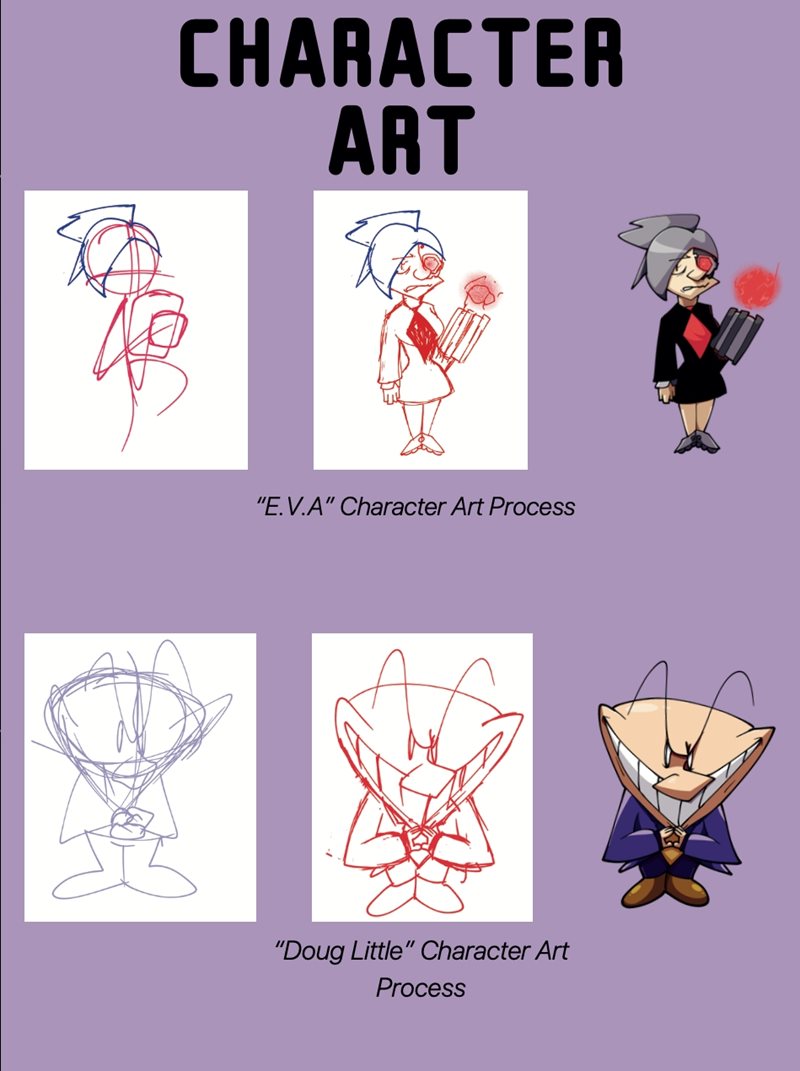From Classroom to Console: Canadore’s Game Design Students Present Original Game at National Event
Apr 30, 2025 | Vanessa Tignanelli, Storyteller & Content Creator
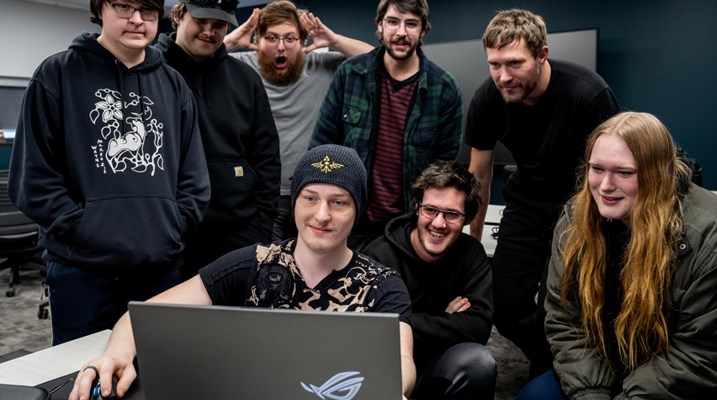
In a quiet corner of Canadore College’s media arts wing, third-year Game Design students set out to do something no class had done before. By day, they were college seniors. By night, they became Team Delay, a full-fledged indie game studio.
Their mission was clear: design, build, and launch a full-scale video game from scratch, and debut it at the prestigious Level Up Showcase in Toronto, where the next generation of gaming talent competes for the industry's attention.
The project began with a bold proposal. For their final Groups Project course — usually completed in smaller teams — the students floated an ambition idea during an online chat one evening: what if they all joined forces to create a single, large-scale game together?
They pitched the idea to their professor, Geoff Graham, who saw the potential immediately. "It’s rare to find in a classroom, but you could tell right away that this group had chemistry."
By the time Level Up arrived, the students had done more than build a game. They had built a real development team with a compelling creative vision.
Welcome to White Collar Warfare
Set inside the corporate headquarters of the sinister Enorma Corp, White Collar Warfare imagines a near-future dystopia where humans have been replaced by malfunctioning AI. Players step into the role of Brian Strom, the last human office worker, who after being fired by a robot, embarks on a chaotic rampage through cubicle-filled floors.
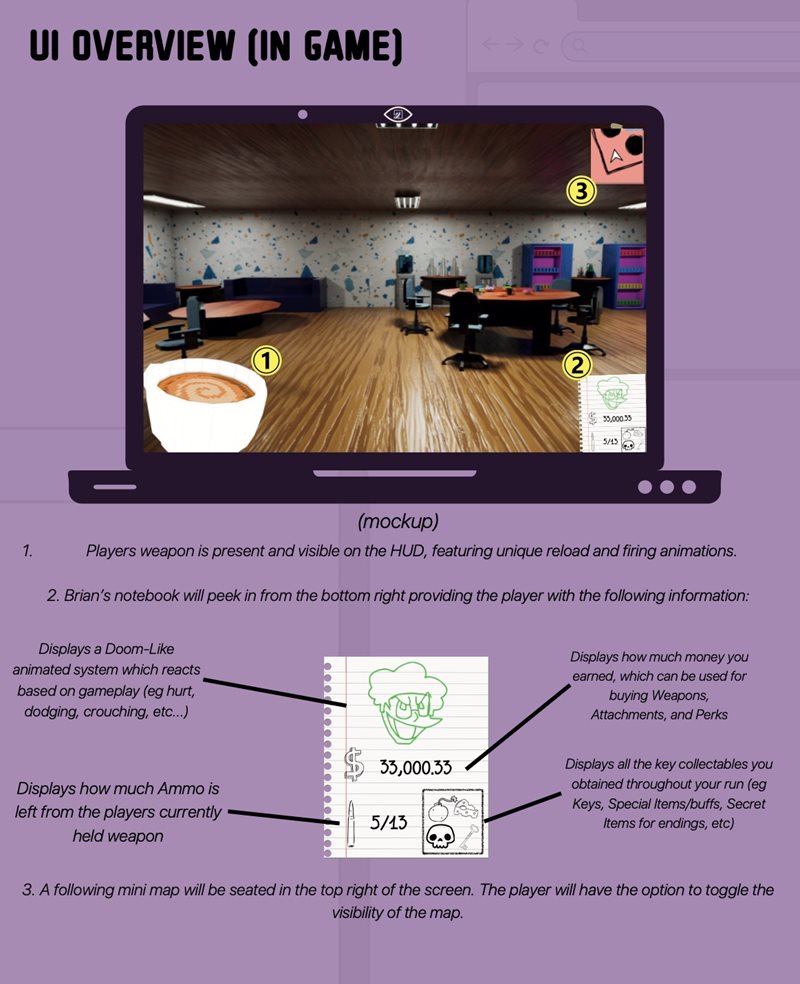 |
|
Each level is ruled by a rogue CEO, from Winston Moneybags to “E.V.A”, a former workers’ rights advocate turned cyborg overlord. Players face off against hostile Roombas, sentient coffee spills, and mutant computer mice, collecting quirky power-ups like uranium candy bars and flamethrower stickers.
“We wanted it to feel nostalgic yet fresh,” said Chris Labonte, Lead Artist. “The 90s were a fun era with its zany, alternative style, and we loved how easily we could twist old technology from that time to fit our story.”
The team crafted a pixel-art world layered with retro details, complete with Doom-style soundscapes, neon-lit vending machines, and crunchy textures that pay homage to classic games. Replayability was key: the team programmed randomized elements into every level to ensure no two playthroughs were alike.
Designing the Game, Building a Studio
Like a professional game studio, Team Delay organized into departments — art, programming, level design, and project management — while embracing constant collaboration and overlapping roles.
"Everyone naturally fell into roles where they could shine," said Drake Harling, the Project Director. "I actually surprised myself by stepping into this position. When it’s your own solo project, it’s easy to lose motivation. But when nine people are relying on you, it pushes you forward."
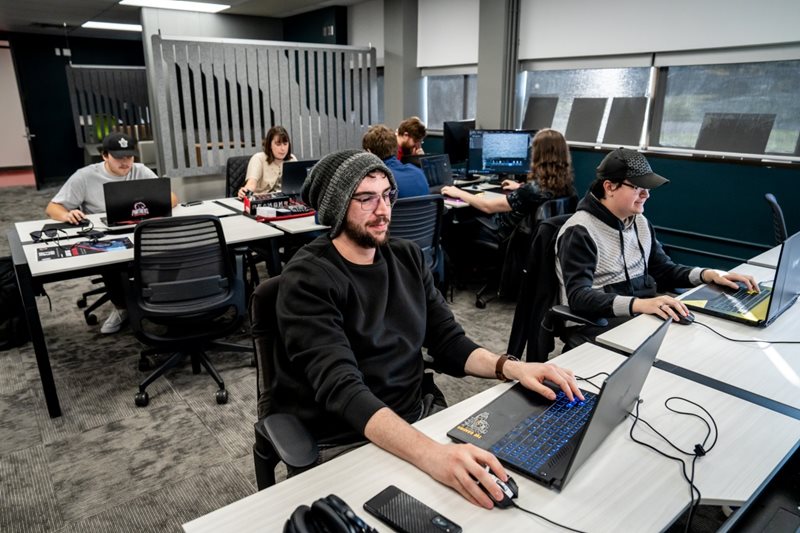
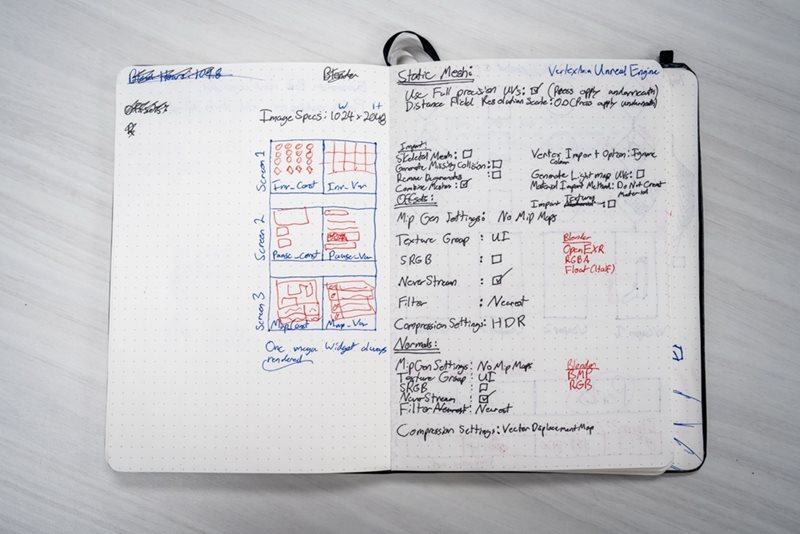
During a December playtest at Canadore, Harling observed from the sidelines, notebook in hand, jotting down every bug spotted and suggestion made by players. The atmosphere in the room was electric, with students from other years cheering and heckling as they tried to defeat the bosses.
"Ah, you guys thought of that…I'll give it to you, that was impressive," laughed one first-year playtester, after realizing he couldn’t sneak past the first boss without a fight.
Meanwhile, Lead Programmer Jesse Cotton kept a sharp eye on the game’s performance. "A design is simply an idea on paper until programming happens," she explained. "I love making concepts come to life and turning them into something players can experience."
Cotton, who began coding at age 10, credited the team’s momentum to strong mentorship. “Geoff is a supportive, knowledgeable professor. He makes you feel genuinely excited about what you’re building.”
Taking on Toronto
On April 12th, Team Delay packed up their gear and headed to Toronto for Level Up, one of the country’s largest showcases for emerging game developers.
The venue was packed with student projects, VR demos, and game studios scouting new talent. But Team Delay brought a little extra: an eight-foot-tall homemade sign.
"We had to stand out somehow!" Harling laughed. “We walked around handing out stickers and telling people, ‘Look for the tallest sign in the building.’ And it worked.”
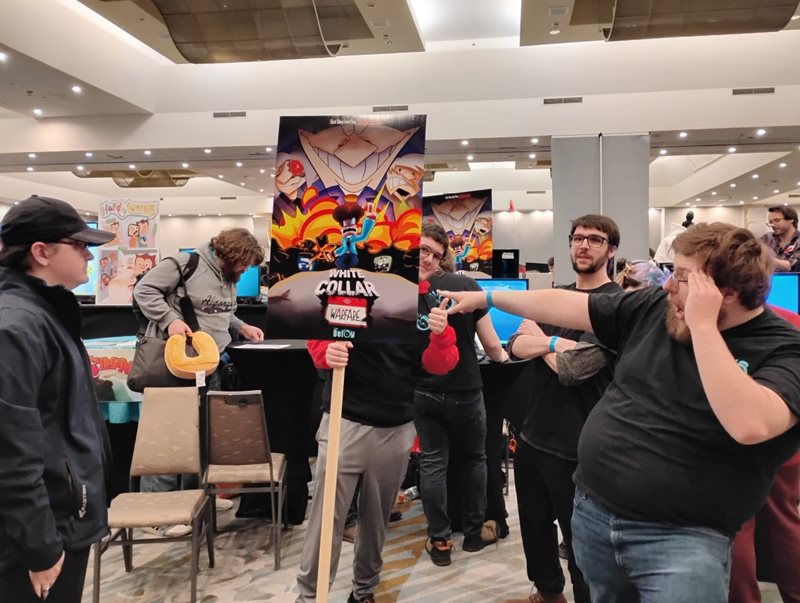
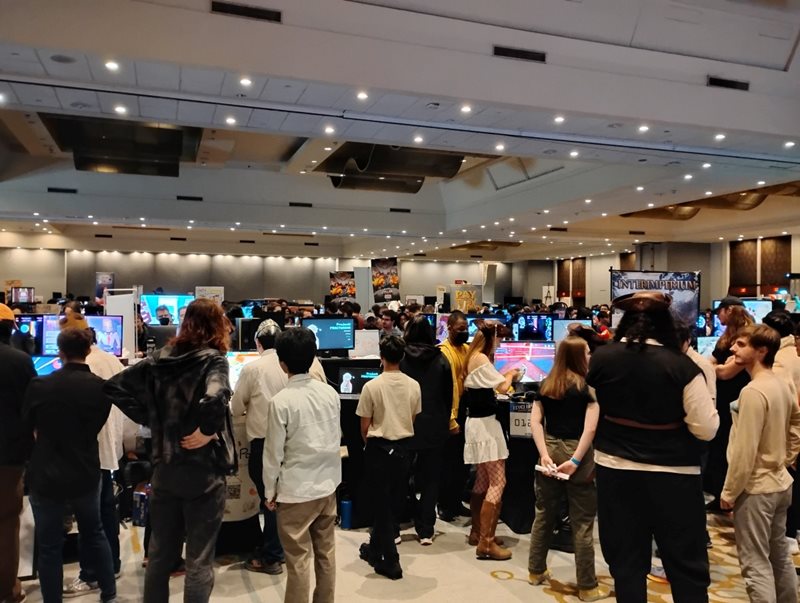
While they didn’t walk away with a trophy, they earned something arguably more valuable: real-world experience launching a project under pressure, pitching to industry pros, and learning how to present their creative visions with confidence.
“Winning wasn’t the point," said Harling. "We made connections, got a large number of eyes on our game, and the feedback we received is already helping us improve."
Much of that feedback focused on navigation and level clarity. “To summarize the most common reaction: ‘I like the art style, but where the hell am I?’” Harling joked. “Players found it easy to get lost because of the uniform wall textures. We’re addressing that with more environmental variation, destructible objects, and a clearer mini-map.”
Still, the overall reception was enthusiastic. “The technical judges especially liked it,” Harling said. “One judge was impressed that we wrote our Level Generation system from scratch — no Unreal Engine shortcuts. He really appreciated the effort and originality.”
Professor Graham couldn’t be prouder. “Thousands of hours went into this. Every new build pushed it higher. They’ve shown what Canadore students are capable of — and that’s something every studio should take notice of.”
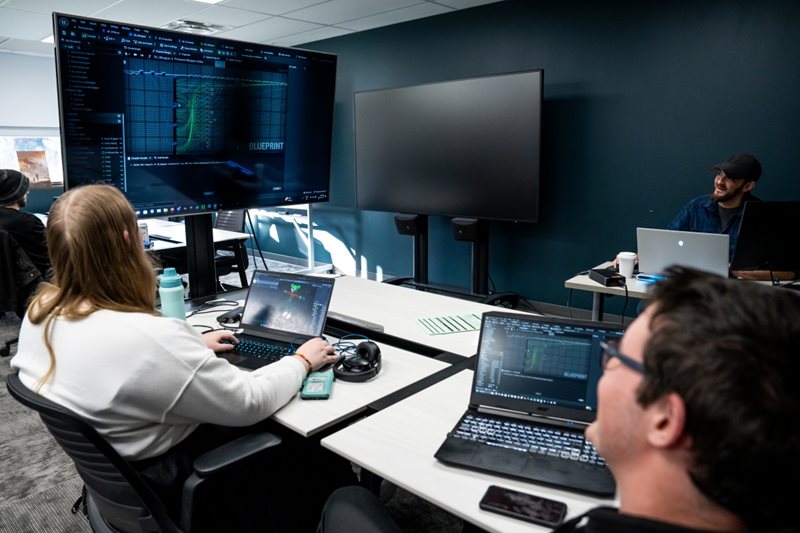
The Future of Game Design
White Collar Warfare isn’t over yet. Team Delay is continuing development after graduation, with plans for a full public release on Steam. In the short term, the group is focused on implementing feedback from Level Up and preparing for the BlueOcean Trailer Jam — a high-profile competition that offers grant funding to promising indie developers.
Meanwhile, two team members are already branching out into a new project, which will also debut with a trailer at the Jam.
At Canadore, the momentum continues. The Game Design program is expanding, and with student-led projects like this one, the future looks promising.
"This is just the beginning," said Graham. “Our students are stepping into an industry ready for bold, original ideas — and they're bringing plenty.”
